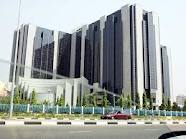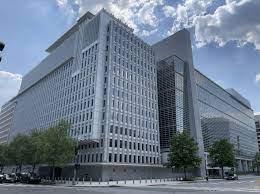15 December 2014, Abuja – Hopes of stable power supply in the country have received another boost with the introduction of the N213 billion Nigeria Electricity Market Stabilisation Facility (NEMSF) designed to address obstacles to increasing power generation.
The successful privatization of the PHCN successor companies last year had raised hopes that Nigerians would soon begin to experience significant improvement in power supply. But almost a year after new owners took over the five generating companies and 10 distribution companies, power generation has remained below the 4000 megawatts, and most times dropping below 2000 megawatts.
A major factor for this below expectation performance was the issue of gas supply, as most of the power generating plants are gas based and their output depends on gas supply. Though the generating companies were willing to increase power output, they are however constrained by inadequate gas supply. Standing between them and adequate gas supply was ….debt. The debt was for gas supplied to the power companies while they were owned and managed by the PHCN successor companies. The gas companies insisted that the new owners have to pay this debt before they can increase and guarantee gas supply. Their argument was that they needed the money to increase production capacity required to raise gas supply. But because the power companies could not increase power generation, they had challenge generating enough revenue to be able to repay the debt to the gas companies.
Realising the potential danger of this vicious circle to the possibility of recouping the loans they had extended to fund the power sector reform, and also to the nation’s objective of adequate and stable power supply, banks and the Central Bank of Nigeria (CBN) under the aegis of Bankers Committee in September decided to step into the matter by helping the power companies to repay the debt to the gas companies.
Briefing j, ournalists at the end of the Committee’s meeting in September, Managing Director, Ecobank Nigeria, Jibril Aku, said the Committee resolved to service the debt, to enhance gas supply and boost power output in the country. Aku said the banks will recover the fund from the Multi-Year Tariff Order (MYTO) deductions.
He said the Bankers’ Committee is willing to support the initiative with government, where a Special Purpose Vehicle (SPV) will be set up to provide loans to clear the debt, and overtime, the loan would be recovered through MYTO tariff deduction.
Aku said the essence of the power transformation programme is to achieve efficiency and improve power supply, which was constrained by gas shortage.
He said: “Obviously, gas coming into the power stations would affect the revenue. Many of the operators have not raised their production capacity because of shortage of gas. The gas companies have always been agitating that this debt be paid; otherwise, they will not produce and will begin to accumulate new debts. The Committee believes that most of the problems associated with gas-to-power would be resolved and Nigeria will begin to see a generating company that is inspired to increase power generation.”
That decision materialised into the Nigeria Electricity Market Stabilsation Facility (NEMSF) which became effective last month following the signing of the Definitive Agreements by the CBN, the Ministry of Petroleum Resources, Ministry of Power and Nigeria Electricity Commission.
Features of the Facility
According to the guidelines, the NEMSF is aimed at settling certain outstanding debts in the Nigerian Electricity Supply Industry (NESI) amounting to 213 billion and guarantee the take-off of the Transitional Electricity Market (“TEM”). In specific terms, the proposed facility will cover legacy gas debts and the shortfall in revenue during the Interim Rule Period (IRP). The facility will be administered through deposit money banks. The Facility will be disbursed at the rate of 10 percent per annum. The tenure shall not be more than 10 years. A Special Purpose Vehicle (SPV) that complies with section 31 of CBN Act 2007 will serve as an intermediary between the banks and the Electricity market players. Nigeria Electricity Regulatory Commission (NERC) shall reset the Multi Year Tariff Order (MYTO) to ensure that it provides for the loan repayment including the costs of setting up and operating the NEMSF. The other power sector value chain players must also agree to specific service related commitments which include the following: Gas Suppliers to commit to assured gas supply at higher volumes; Generating companies (GENCOs) and Distribution Companies (DISCOs) to commit to utilizing the funds for equipment/infrastructure acquisition, refurbishment and/or upgrade; All parties that are licensed by the Nigerian Electricity Regulatory Commission (NERC) to operate in the electricity market to accept to be immediately bound by performance agreements signed with the relevant authorities including the Bureau of Public Enterprise (BPE). All parties will also be subject to additional oversight mechanism to be developed by NERC and CBN to ensure business continuity and that all power sector players meet obligations that are critical for continued electricity supply.
A New Gas Market
Speaking at the signing of the Definitive Agreement in Abuja, the CBN Governor, Mr. Godwin Emefiele, said the intervention would reset the economics of the power sector and address liquidity challenges.
occasioned by legacy debts and revenue shortfall in the sector.
He said all parties have had to make compromises in order to make progress in the interest of the country.
On her part, the Minister of Petroleum Resources, Mrs. Diezani Alison-Madueke, said the sum of N36.9 billion in legacy debts to the power sector had all been settled through the CBN-led intervention scheme.
She said the outcome of the negotiations had ensure that “all claims are hereby settled,” adding that going forward, appropriate security measure had been put in place to ensure that gas supply to the power sector is paid for.
She added that the intervention would set a new page in the Nigerian domestic gas market.
“Let me add that today’s intervention is also complimented by a reciprocal commitment by the gas suppliers. A medium term gas supply from the various gas suppliers is being made today. Today’s commitment will bring to the grid an additional 2.5 billion cubic feet per day of gas over the period from now till 2017,” Alison-Madueke said.
The Minister of Power, Prof. Chinedu Nebo, said the agreement represented an unprecedented synergy among the players adding that the sector had now come of age.
–
– Vanguard




